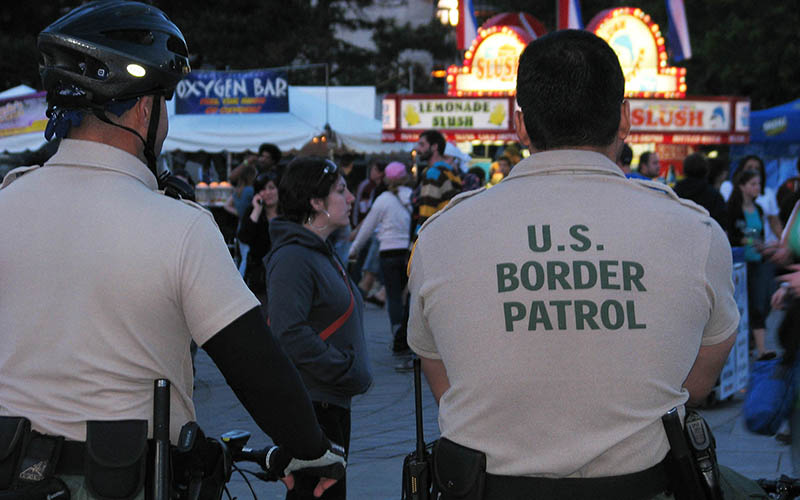WASHINGTON – Just over half of voters in southern border states disapprove of the way President Donald Trump is handling border and immigration issues, according to a new report by the U.S. Immigration Policy Center.
The survey of 2,750 voters from the four southern border states also found that no more than 40% of those polled had a “great deal/a lot” of trust in the way Border Patrol officials are doing their jobs – with as few as 29% confident that officials would be held accountable for abuses.
In Arizona, a slightly higher number of respondents agreed with the administration’s policies, but they were also more likely to cast doubt on the work of the Border Patrol.
Requests for comment on the report from Customs and Border Protection and from border-security advocates were not returned. An official with the union representing Border Patrol agents was not available to comment.
But an official with the Southern Border Communities Coalition, which participated in the release of the report Wednesday, said the findings were both “surprising and not surprising.” Coalition co-chair Andrea Guerrero said border communities have long been saying “we need to revitalize, not militarize, our border region.”
“So it’s not surprising that voters disapprove of the president’s job at the border,” she said. “It’s not surprising that voters across the entire Southwest lack confidence that Border Patrol will keep them safe or protect their rights or be held accountable.”
The telephone survey of 2,750 voters across Arizona, California, New Mexico and Texas was conducted from Oct. 8 to Oct. 22 by the Immigration Policy Center at the University of California, San Diego. The margin for error when answers from all four states was considered was plus or minus 2.1%; for Arizona results, it was 4.4%.
The survey comes at the end of a fiscal year in which Customs and Border Protection reported apprehensions at the Southwest border had reached nearly 1 million people, an 88 percent increase from the previous year and the highest level since 2008.
The survey said 56.3% of those surveyed disapprove of the way Trump is handling issues at the U.S.-Mexico border, while the president had slightly fewer naysayers – 54.7% – in Arizona.
But the numbers were reversed in Arizona when it came to support for the job Border Patrol is doing, with state voters expressing less trust than the other states in all three areas surveyed.
Overall, one in three voters were confident that Border Patrol would keep them safe, compared to 29.3% in Arizona; 40.7% believed the agency would protect civil liberties, compared to 38.8% in Arizona; and 28.6% felt officials would be held accountable for violations, while that was 26.4% in the state.
Cochise County Supervisor Ann English said she does not think residents of her county are particularly concerned about the presence of Border Patrol agents. But she agreed there are disagreements about other aspects of border policy.
“There has been some controversy and people saying, ‘Well, why are they putting up a bigger wall?'” she said. “We don’t have that many people coming through here anymore. Why do we need an 18-foot wall when the wall we have seems to be working, right?”
She said it’s not an either-or issue for local residents, noting that the president’s decision to divert Defense Department funds to border wall construction got a mixed response in the county.
“We do have a military base that lost a lot of money that went into the fund for the border wall, and in a county with a lot of veterans, that was a bad move,” English said. “The military waited a long time for their needs to be met and then all of a sudden, the funds were swept, so you see those pockets of controversy.”
Vicki Gaubeca, director of the Southern Border Communities Coalition, defended border communities in Wednesday’s conference call to release the survey.
Gaubeca said she thought the results showed voters in those areas “cared deeply about responding with humanity and compassion … toward individuals and families who cross the border, while expressing skepticism at “the concept of border control” keeping families safe.


